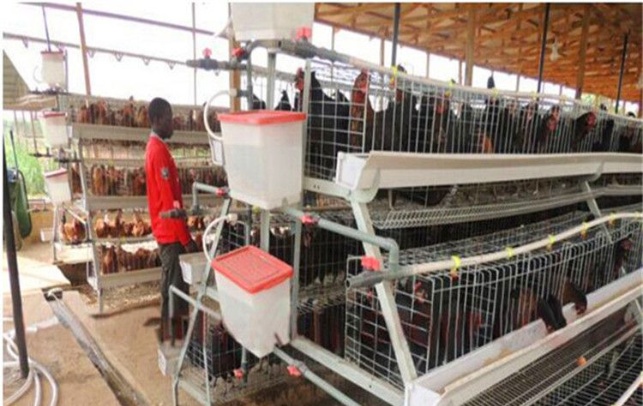The Benefits of Movable Chicken Coops and Mobile Chicken Cages
Time : 2024-05-29
Movable chicken coops, moveable chicken coops, and mobile chicken cages are innovative housing structures that have gained popularity in recent years. These structures offer several advantages over traditional fixed housing systems, providing flexibility, mobility, and improved management practices. This article will delve into the benefits of movable chicken coops and mobile chicken cages in poultry farming.
Understanding Movable Chicken Coops
Movable chicken coops, also known as moveable chicken coops, are housing structures designed to be easily moved from one location to another. These coops are typically lightweight and portable, allowing farmers to relocate them as needed to optimize space utilization and promote better pasture management.
The primary benefit of movable chicken coops is their flexibility. Farmers can easily move the coops to different areas of the farm, allowing the chickens to graze on fresh pasture and reducing the risk of overgrazing. This mobility also enables farmers to manage the flock more efficiently, as they can easily monitor the chickens’ health and collect eggs without having to walk long distances.
Movable chicken coops also offer several environmental benefits. By allowing chickens to graze on fresh pasture, farmers can reduce the need for chemical fertilizers and pesticides, promoting a more sustainable and eco-friendly farming system. Additionally, movable chicken coops can help in reducing soil erosion and improving soil health, contributing to better overall land management practices.

Exploring Mobile Chicken Cages
Mobile chicken cages are another innovative housing structure that offers several benefits to poultry farmers. These cages are designed to be easily moved from one location to another, allowing farmers to optimize space utilization and promote better flock management practices.
The primary benefit of mobile chicken cages is their mobility. Farmers can easily move the cages to different areas of the farm, allowing the chickens to graze on fresh pasture and reducing the risk of overgrazing. This mobility also enables farmers to manage the flock more efficiently, as they can easily monitor the chickens’ health and collect eggs without having to walk long distances.
Mobile chicken cages also offer several environmental benefits. By allowing chickens to graze on fresh pasture, farmers can reduce the need for chemical fertilizers and pesticides, promoting a more sustainable and eco-friendly farming system. Additionally, mobile chicken cages can help in reducing soil erosion and improving soil health, contributing to better overall land management practices.
Unveiling the Benefits of Mobile Chicken Coops
Mobile chicken coops are a hybrid housing structure that combines the benefits of movable chicken coops and mobile chicken cages. These coops are designed to be easily moved from one location to another, allowing farmers to optimize space utilization and promote better flock management practices.
The primary benefit of mobile chicken coops is their versatility. Farmers can easily move the coops to different areas of the farm, allowing the chickens to graze on fresh pasture and reducing the risk of overgrazing. This mobility also enables farmers to manage the flock more efficiently, as they can easily monitor the chickens’ health and collect eggs without having to walk long distances.
Mobile chicken coops also offer several environmental benefits. By allowing chickens to graze on fresh pasture, farmers can reduce the need for chemical fertilizers and pesticides, promoting a more sustainable and eco-friendly farming system. Additionally, mobile chicken coops can help in reducing soil erosion and improving soil health, contributing to better overall land management practices.
Conclusion
In conclusion, movable chicken coops, moveable chicken coops, and mobile chicken cages are innovative housing structures that offer several benefits to poultry farmers. These structures provide flexibility, mobility, and improved management practices, contributing to better overall flock health and productivity. By utilizing these housing structures, farmers can create a more sustainable and eco-friendly farming system while optimizing space utilization and promoting better land management practices.











